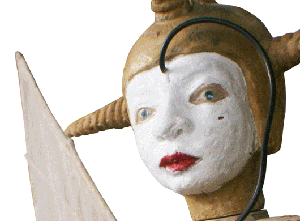
BOJONEGRO, East Java (Antara/Jakarta Post/Pacific Media Watch): Indonesia's much-lauded press freedoms have not been as beneficial in exposing graft as initially hoped, media experts said on Wednesday.
Muhammad Rudi Hartono, chairman of the Surabaya chapter of the Association of Independent Journalists (AJI), said the flourishing of media outlets in the years since the downfall of former President Suharto had only given rise to more problems.
"What press freedom essentially did was make it easier for people to get into the mass media business, which meant there was a lot more reporting on issues like corruption," he said at a discussion in Bojonegoro on the media's role in fighting corruption.
The problem, Rudi said, came from the lack of objectiveness among most of those new media outlets when reporting on corruption, many of which had corporate or political interests in reporting on certain cases or ignoring others.
"While we obviously need people to report on corruption, it takes a properly regulated, professional and consistent press corps to do this in such a way that the public and the government can act positively on those reports," he said.
Muhammad Rochib, chairman of the AJI's Bojonegoro chapter, agreed that press freedom had led to a dumbing-down in reporting over the years.
"That's why the AJI is trying to advocate higher-quality reporting that is both informative and has an educational value for the public," he said.
The AJI's calls came just a day after the Press Council stressed the need for the public to keep an eye on the media in order to ensure higher standards of reporting and watch out for possible ethical violations.
"They must monitor the press and report any criminal violations or journalistic lapses to the council, so that we can achieve a professional press corps," Muhammad Ridlo Eisy, the Press Council's head of research, said at a discussion on Tuesday in Padang, West Sumatra.
He added that the public should always be critical of news reports because inaccuracies were known to crop up.
"They could be the result of a typographical error by the reporter or a lack of understanding of the issue," he said. "In some cases, they could stem from the source lying to the reporter, or even from media owners with an interest in seeing the inaccuracy pushed through. Whatever the case, we need to have measures in place to filter out any inaccuracies in the news."
Ridlo said the options open to the public for reporting poor journalism included exercising the right to respond through the same media, filing a complaint with the Press Council or filing a report with the police.
He added that public participation was necessary to groom a more professional press corps that was not beholden to corporate or political interests, which in turn would result in better-quality reporting.
Rudi stressed that despite its shortcomings, the country's press freedom was essential and should never be repealed, and media outlets should never shy away from reporting on corruption as long as they have reasonable grounds.
Muhammad Yasir, head of the Bojonegoro chapter of the Indonesian Bar Association (Peradi), agreed that the press played an important role in exposing and helping resolve corruption cases. "The press is needed to keep a case in the public eye and push [police and prosecutors] to ensure due legal process," he said at Wednesday's discussion.



